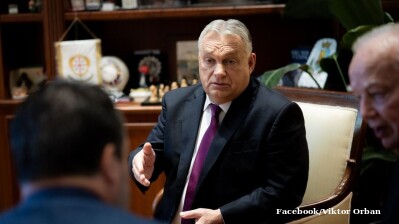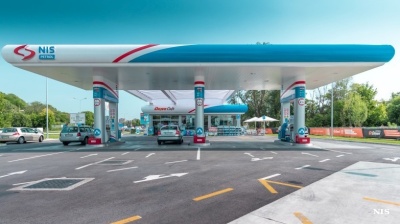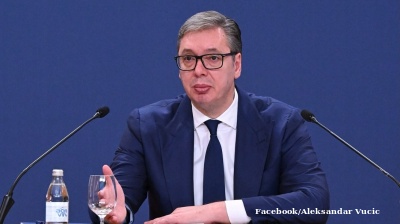Serbian Foreign Minister Ivica Dacic hinted in an interview with EURACTIV Serbia on January 26 that Belgrade might change its position on imposing sanctions on Russia.
While Serbia backed UN resolutions condemning Russia’s invasion of Ukraine and the subsequent annexation of Ukrainian territory, it has declined to join Western sanctions on Russia, despite coming under pressure to do so as an EU candidate country.
There have already been calls from MEPs and other European politicians for Serbia’s EU accession process to be frozen if it does not align with the bloc’s foreign policy.
“We condemn the violation of Ukraine’s territorial integrity and that is how we voted in international bodies. Whether we will impose sanctions on Russia is another matter. It is not a matter of time or deadlines, it’s a matter that concerns our political and economic interests,” he told EURACTIV Serbia.
Elaborating on Belgrade’s position, Dacic said that Serbia had not joined sanctions imposed since Russia’s annexation of Crimea back in 2014 up to now “because we estimated that it would not be in our interest”.
However, he indicated that could change in future. “If something changes to the detriment of Serbia’s interests, then our decision will be adjusted accordingly because we shall assess at every moment what is the best decision for our economy, for our standing in the world, and for the citizens of Serbia,” Dacic said in the interview with EURACTIV Serbia.
Dacic’s latest comments are broadly in line with those previously voiced by President Aleksandar Vucic, who has said since February last year that Serbia will act in line with its own interests when deciding whether or not to impose sanctions.
Vucic said when announcing Serbia’s initial decision not to join sanctions, immediately after Russia’s invasion of Ukraine in February 2022, that sanctions decisions would be guided “solely by the protection of its citizens' vital economic and political interests”.
He made the same point again in an interview with the Financial Times in April when he said that Serbia will not jeopardise its national interests by joining the sanctions. “[W]e have our own side, Serbia’s interests,” he said.
Serbia has benefitted from Russia’s support in refusing to recognise Kosovo, which unilaterally declared independence from Serbia in 2008, and in keeping Kosovo out of the UN and other international institutions. Serbia also secured a gas deal with Russia on favourable terms in 2022.
On the other hand, the decision not to align with the EU’s sanctions policy has harmed Serbia’s accession prospects, which in turn has put off investors from EU countries.
News
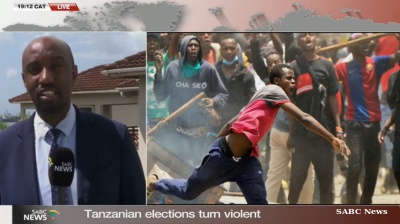
Tanzania election protests trigger curfew; military deployed, internet cut
Demonstrators clashed with security forces in Dar es Salaam, setting a bus and a gas station ablaze, prompting authorities to impose a curfew from 6 p.m. The military was deployed in Dodoma, Zanzibar, and the commercial capital.
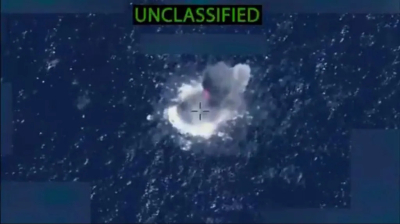
US strikes on drug vessels kill 14 in deadliest day of Trump's narcotics campaign
The US military killed 14 people in strikes on four vessels allegedly transporting narcotics in the eastern Pacific Ocean, marking the deadliest single day since President Donald Trump began his controversial campaign against drug trafficking.
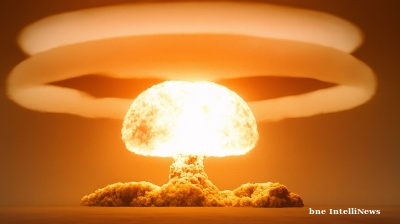
Russia withdraws from Cold War plutonium disposal pact with US
Russian President Vladimir Putin has formally withdrawn from a key arms control agreement with the United States governing the disposal of weapons-grade plutonium, as the few remaining nuclear security accords between the two powers vanish.
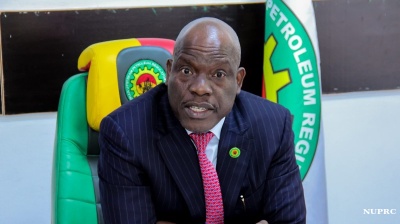
Nigeria’s NUPRC holds exploratory talks with Bank of America on upstream financing
Nigeria's upstream regulator, NUPRC, has held exploratory talks with Bank of America as the country looks to attract new capital and revive crude output, after falling short of its OPEC+ quota.
